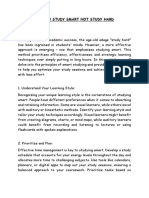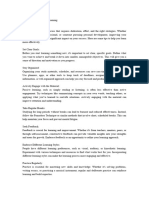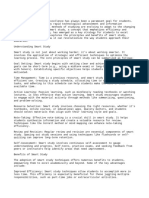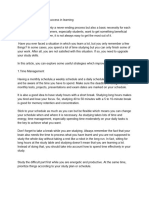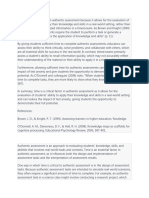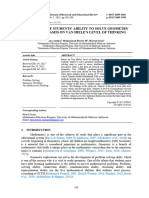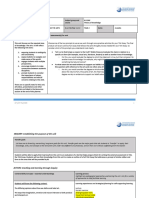0% found this document useful (0 votes)
37 views4 pagesStudy
This document provides a comprehensive overview of the significance, principles, techniques, and strategies of studying, emphasizing its importance for personal growth, academic success, and career advancement. It outlines effective learning methods such as active recall, spaced repetition, and creating conducive study environments, while also addressing common challenges like procrastination and test anxiety. Ultimately, it advocates for cultivating a lifelong learning mindset to adapt and thrive in an ever-changing world.
Uploaded by
flmrbkingCopyright
© © All Rights Reserved
We take content rights seriously. If you suspect this is your content, claim it here.
Available Formats
Download as PDF, TXT or read online on Scribd
0% found this document useful (0 votes)
37 views4 pagesStudy
This document provides a comprehensive overview of the significance, principles, techniques, and strategies of studying, emphasizing its importance for personal growth, academic success, and career advancement. It outlines effective learning methods such as active recall, spaced repetition, and creating conducive study environments, while also addressing common challenges like procrastination and test anxiety. Ultimately, it advocates for cultivating a lifelong learning mindset to adapt and thrive in an ever-changing world.
Uploaded by
flmrbkingCopyright
© © All Rights Reserved
We take content rights seriously. If you suspect this is your content, claim it here.
Available Formats
Download as PDF, TXT or read online on Scribd
/ 4




